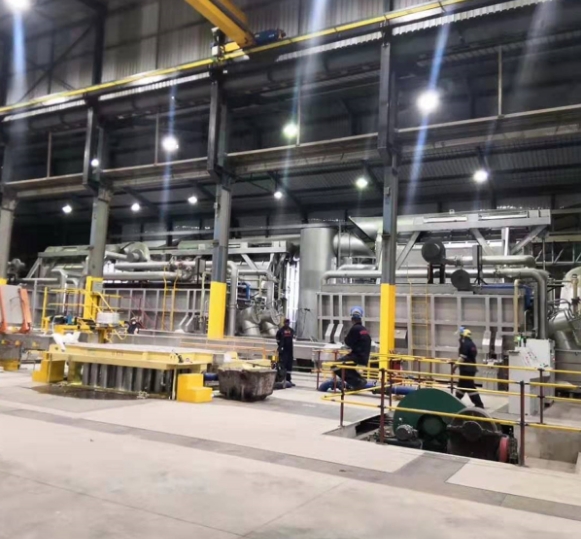- 09
- Oct
What are the refractory materials used in aluminum industrial furnaces?
What are the refractory materials used in aluminum industrial furnaces?
Refractory materials for aluminum industrial furnaces are generally refractory bricks and castables, but the selection varies greatly according to different parts. Refractories for aluminum industrial furnaces need to have high sintering strength, small pore diameter, low content of SiO2, Na2O, and K2O. The furnace lining should also have good sintering performance at a temperature of 800°C. The editor of Kerui Refractories has compiled common refractory materials for aluminum industrial furnaces for your reference only.

The thermal insulation layer of the alumina rotary kiln is covered by a layer of refractory fiber felt on the kiln shell, and then built with diatomaceous earth, floating bead bricks or light clay bricks, and some of them are now replaced with light refractory castables. The working lining of the preheating zone is built with clay bricks, and the high-alumina bricks or phosphate-bonded high-alumina bricks are used for the high-temperature calcination zone.
At present, unshaped refractories have been widely used in the aluminum industry, such as low-calcium aluminate-combined refractory castables in the calcination zone, and steel fiber reinforced wear-resistant castables for kiln mouths, kiln masks, and kiln tails.
The flash furnace is to install heat-resistant steel anchor nails or ceramic anchors on the furnace shell, then spread a layer of 20mm thick refractory fiber felt, and finally pour 200-300 thick refractory castables.
The working lining of the reverberatory furnace of aluminum smelting furnace in contact with molten aluminum is generally built with high-alumina bricks with an Al2O3 content of 80-85%; when smelting high-purity metal aluminum, mullite bricks or corundum bricks are used. On the slope of the hearth, install waste aluminum and other easily corroded and worn parts, and use silicon nitride to combine with silicon nitride bricks. Flowing aluminum troughs and aluminum outlets are severely scoured by molten aluminum. Generally, self-bonding or silicon nitride bonded silicon carbide bricks are used, and zircon bricks are also used as linings. The furnace lining that does not contact molten aluminum generally uses clay bricks, clay refractory castables or refractory plastics.
The induction furnace lining material for smelting aluminum and aluminum alloys is generally high-aluminum dry ramming material, or silicon carbide is added to the alumina dry ramming material, which is not prone to liquid leakage.
